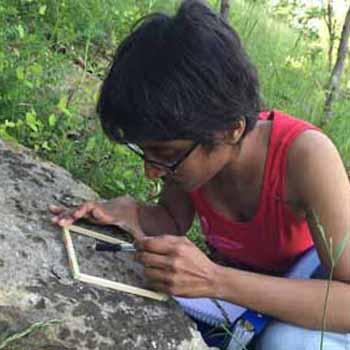The M.S. degree in Geological Sciences is the degree-level most often sought by employers in geological sciences. Excellent opportunities are can be found in both energy and environmental fields as well as careers within or related to geology including government, scientific communication, education, and consulting.
There are too few professional geologists to go around. Almost all graduate M.S. students land jobs even before graduation or go on to doctoral programs. Students work across the country in environmental consulting firms, state and federal environmental and natural resources agencies, or mining and energy companies. A student who received his B.S. and M.S. from OHIO recently moved on to an entry-level $ 95,000-a-year job with Exxon.

